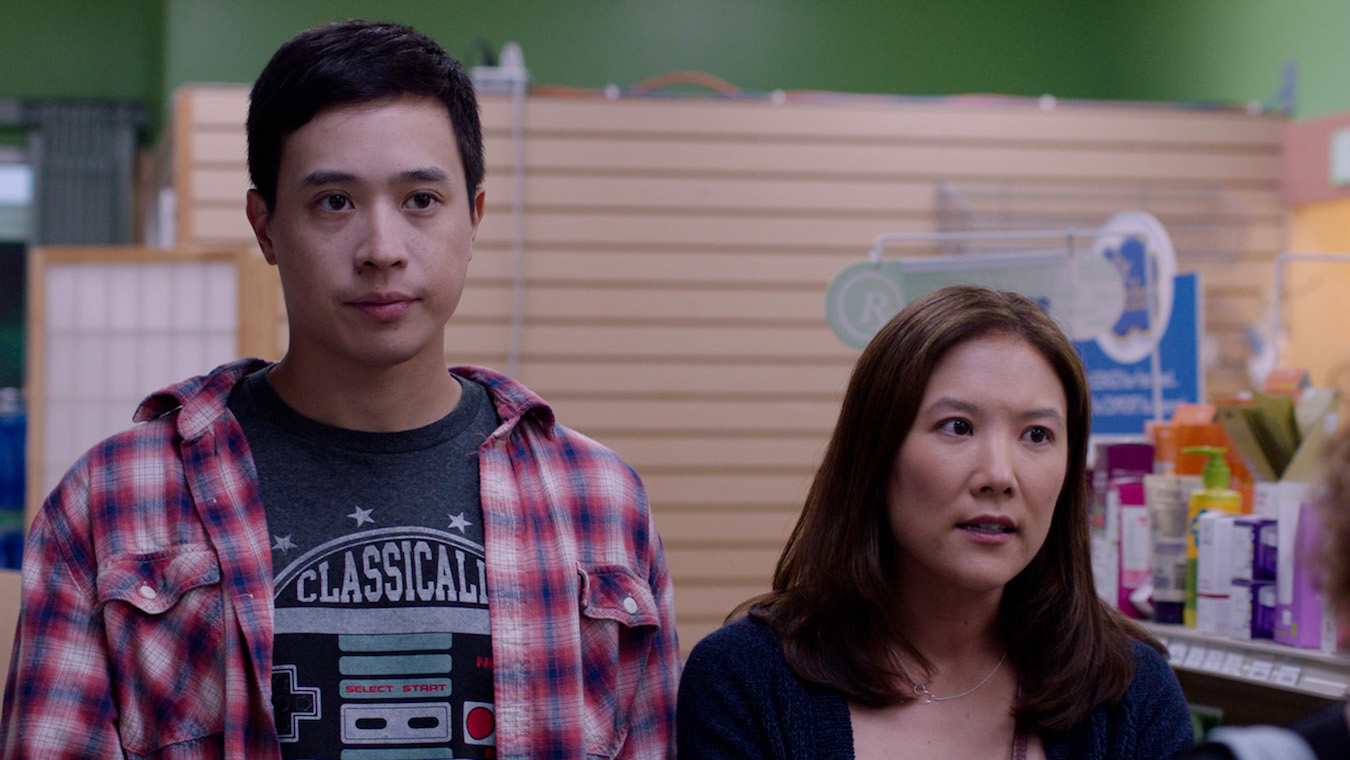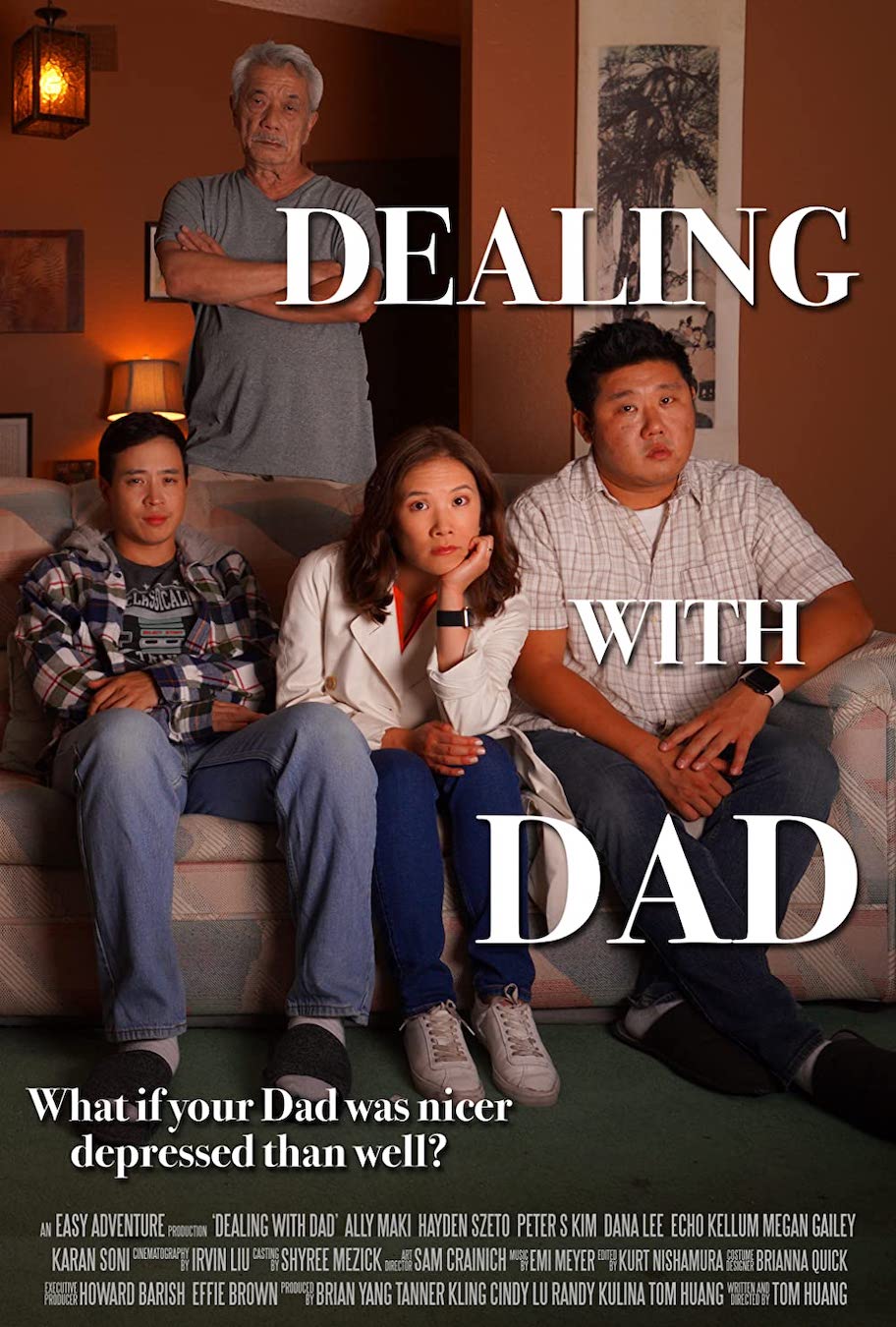by Brian Hioe
語言:
English
Photo Credit: Film Poster
This is a No Man is an Island film review written in collaboration with Cinema Escapist as part of coverage of the 2022 Asian American International Film Festival. Keep an eye out for more!
DEALING WITH DAD has all the makings of a solid comedy about an Asian American family. Nevertheless, the film simply fails to come to life somehow. Maybe it’s because the entire movie feels tonally off-key. Perhaps it has to do with its near-complete lack of soundtrack, an odd choice outside of the art house genre . Or, it may have to do with how few of the movie’s jokes hit the mark.
Dealing with Dad focuses on a trio of Asian American siblings. The three have rocky relations with their father, who was demanding of them growing up and scarcely ever had a word of praise.
The three siblings are Margaret, the protagonist and only daughter, Roy, the eldest son, and Larry, the youngest of the family. Margaret, a successful businesswoman, has difficulty relaxing unless she is constantly in control because of her upbringing. In the meantime, Roy is struggling with a divorce and is plagued by the feeling that he has failed his soon-to-be ex-wife. Lastly, Larry feels like a loser, seeing as he makes a living by scouring garage sales for rare collectibles and still lives at home.
The three siblings are thrown back into their lives after their stern father is laid off from his job, resulting in him spending several months at home depressed. Though he previously seemed to have an endless amount of energy in fussing about the lives of his children and constantly yelling at them, now he refuses to even get out of bed.
It is left to Margaret, then, to rally together her siblings and figure out how they might help their ailing father. Complicating this task, however, is the view among the three of them that they were all emotionally stunted by their father’s treatment of them, compounded with guilt over that they might not have been as watchful to him as they should have.

Film still
The basic ingredients for a successful film are all present, with a premise that rings true to the family experiences of many Asian Americans, and an interesting, humorous set of characters. That the film focuses primarily on the relationship of an Asian American daughter and her father is similar to 2020’s Tigertail. Thankfully, the film avoids being a trainwreck in the way of Tigertail, because it at least manages a coherent character narrative, even if similar to Tigertail, accents of supposedly Chinese or Taiwanese characters are all over the place.
Yet the film never really comes to life somehow, with Margaret, Roy, and Larry sometimes awkwardly seeming to have little chemistry as a family. This occurs despite capable acting by Ally Maki as Margaret, Peter S. Kim as Roy, and Hayden Szeto as Larry, with Maki’s performance being the most well-rounded.
The film’s plot advances by dragging the siblings into various situational setups that are supposed to be comical. For example, at one point in the film, the siblings’ mother tries to set up Roy with an older woman similar age to her who does not speak Chinese. At another point, Larry finds himself competing with a comic book store clerk friend for the affection of his high school crush. However, both interactions prove strangely stilted to the point of awkwardness, perhaps simply not understanding how to write engaging character dynamics. Indeed, this proves a rather fundamental flaw for the film which, again, is made more tonally awkward by its lack of any soundtrack to at least color these humdrum interactions. The sibling’s mother also occupies an awkward role in the film, in that she is never given anything particularly interesting to do, which fleshes out the dynamics between her and her children or between her and her children.
By the time the film ends, one feels that the three siblings in the film have done relatively little in reconciling with each other. Furthermore, their understanding of their father has only improved so much as realizing that he once had dreams which he gave up in order to pursue a better life for his children in America. This hardly seems sufficient cause for some grand reconciliation.
It proves a shame that Dealing with Dad could not have made more out of what was should have ample material for a capable Asian American family comedy. The results are technically capable enough, but ultimately middling.



